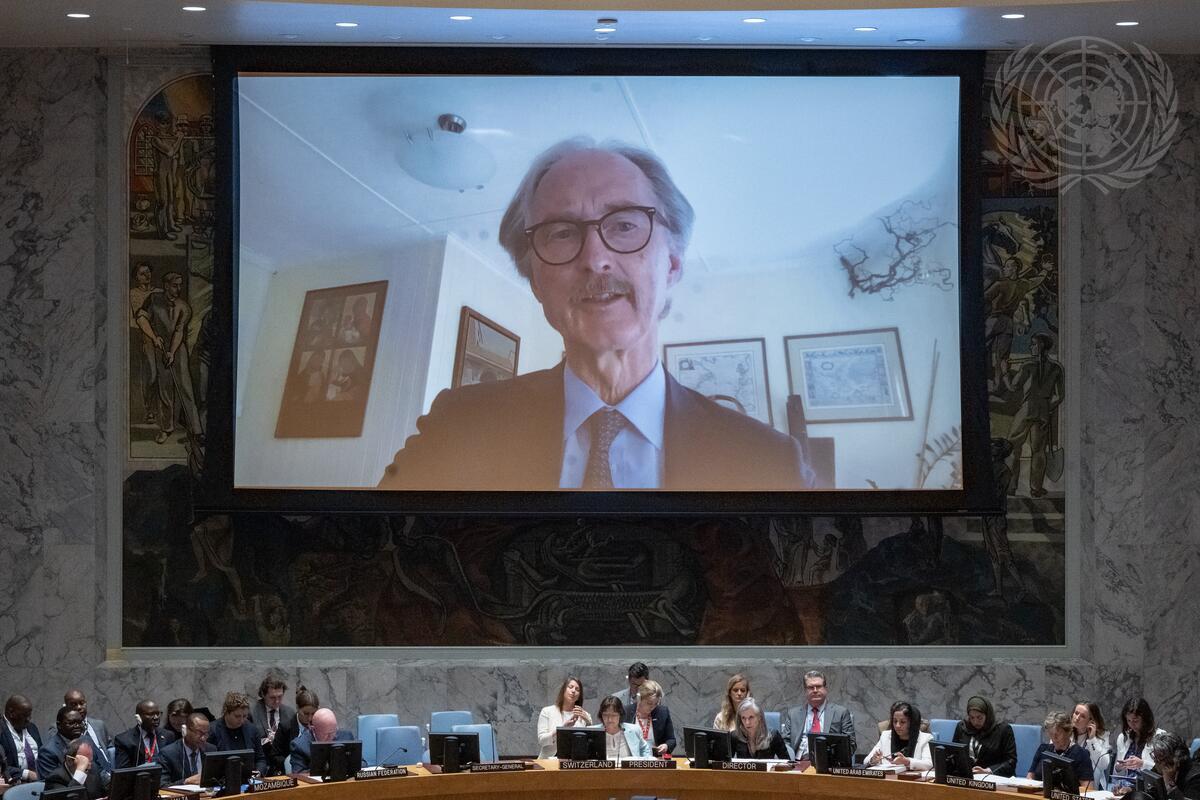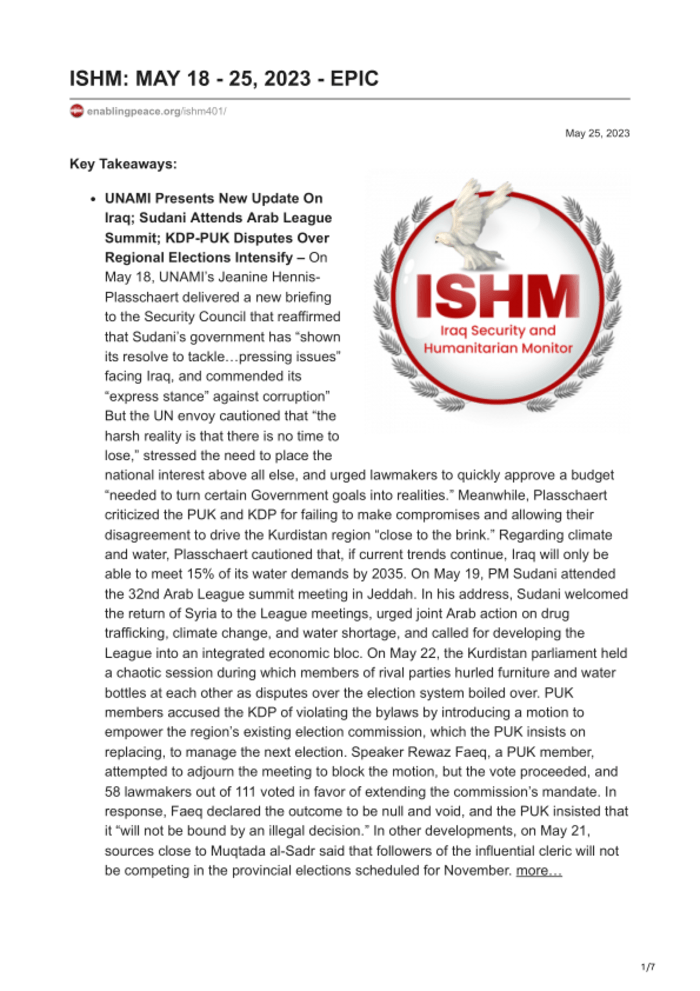Attachments
INTRODUCTION
UNAMI Office of Electoral Assistance, with the operational support of UNOPS, organized a workshop on 28-29 May in Baghdad, bringing together the representatives of the 27 civic society organizations (CSOs) from 15 governorates of Iraq (excluding the CSOs from the Kurdistan region) to discuss the opportunities, challenges and best practices in using the M&E tool. This report covers the workshop’s highlights and key insights and summarizes the discussions from the workshop.
The Office of the Electoral Assistance seeks to enhance and empower the participation of the CSOs in the electoral processes and provide tools to ensure the sustainability and accountability of the CSOs. With this workshop, OEA provided a platform for the CSOs to understand, reflect and focus on the critical role the M&E tool plays in its management.
Objectives set for the workshop were:
-
Understanding the main components of the results-based management and M&E tool.
-
Analyzing the factors impacting the sustainability of the M&E system.
-
Exchanging practical knowledge for improving the M&E system in the context of electoral support.
The workshop opened with the introduction of the Office of the Electoral Assistance (OEA) team and other organizing partners of the event as well as the primary objectives of the workshop. The facilitator, Zarina Isakova, Consultant on M&E and CSO Engagement , elaborated on the workshop’s purpose for the civil society organizations in Iraq.
Three participants – Abbas Okab Ahmed from Baghdad Women Association, Ahmed Oday Suhail Alsalameen from Capacity Organization for Sustainable Development, Mohammed Hussein Ahmed from Al-Noor Foundation shared that they directly cover the M&E portfolio for their organizations.
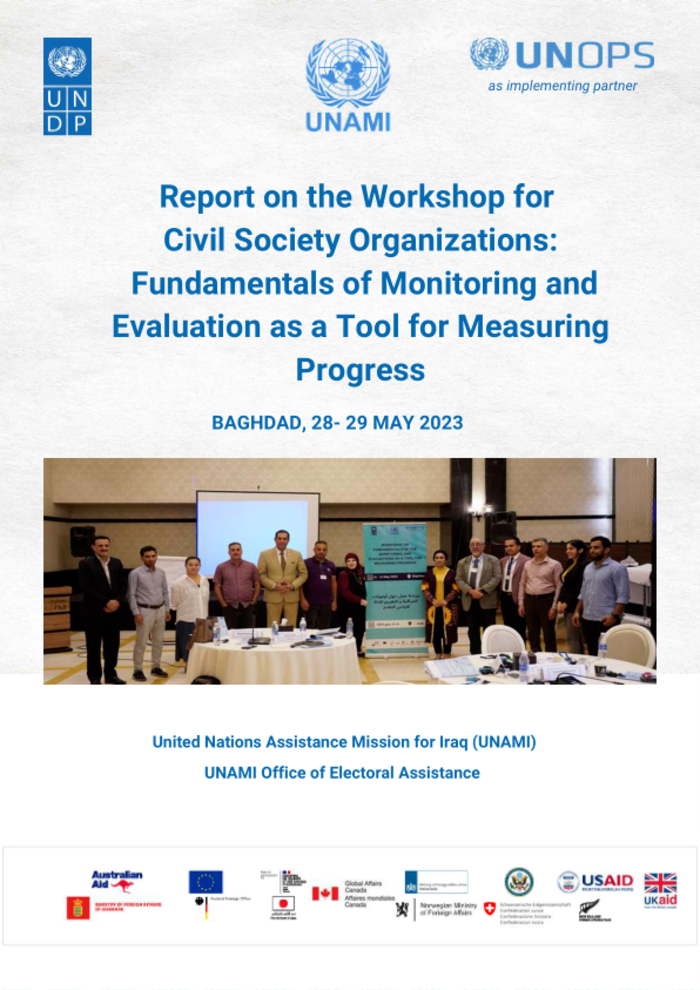
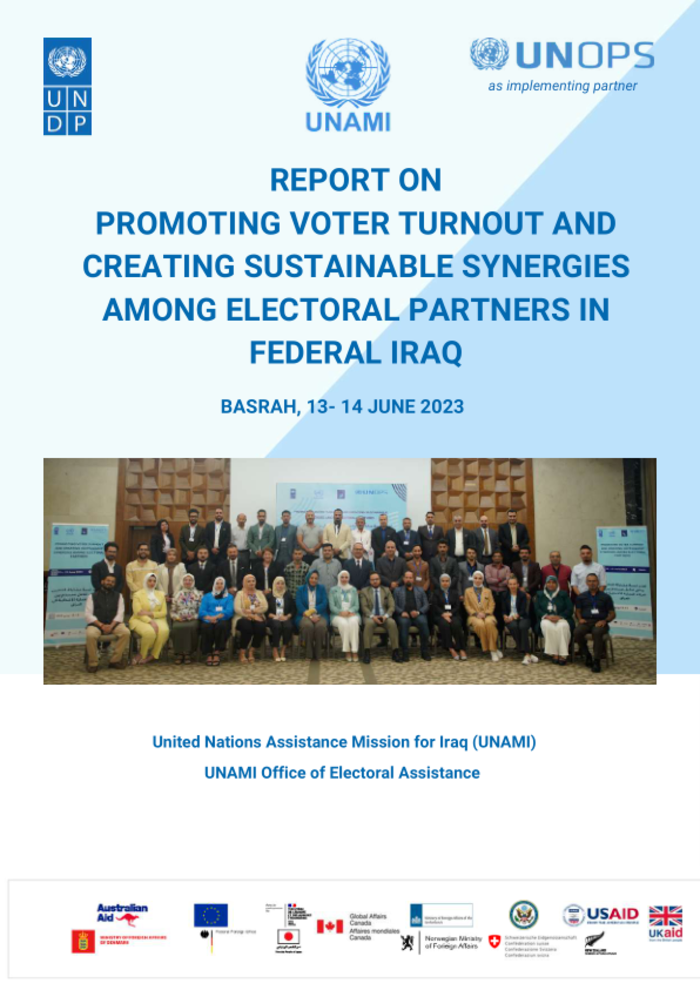
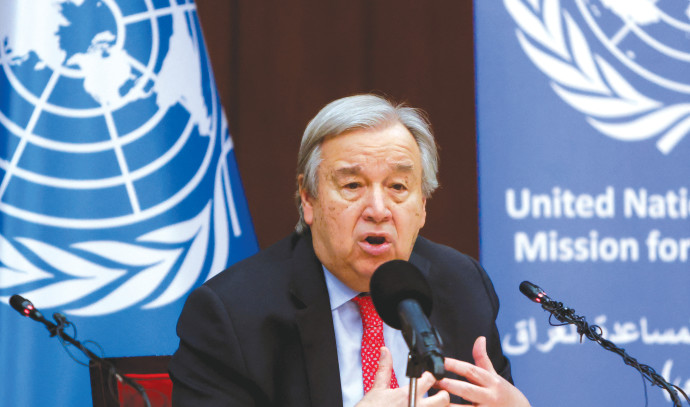
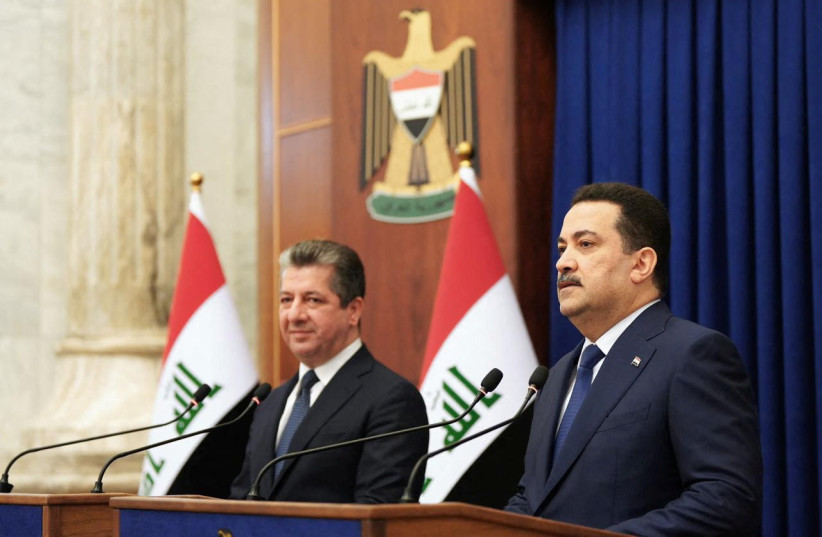 Iraqi Prime Minister Mohammed Shia al-Sudani holds a joint news conference with his Kurdish counterpart Masrour Barzani in Baghdad, Iraq April 4, 2023. (credit: IRAQI PRIME MINISTER MEDIA OFFICE/HANDOUT…
Iraqi Prime Minister Mohammed Shia al-Sudani holds a joint news conference with his Kurdish counterpart Masrour Barzani in Baghdad, Iraq April 4, 2023. (credit: IRAQI PRIME MINISTER MEDIA OFFICE/HANDOUT…